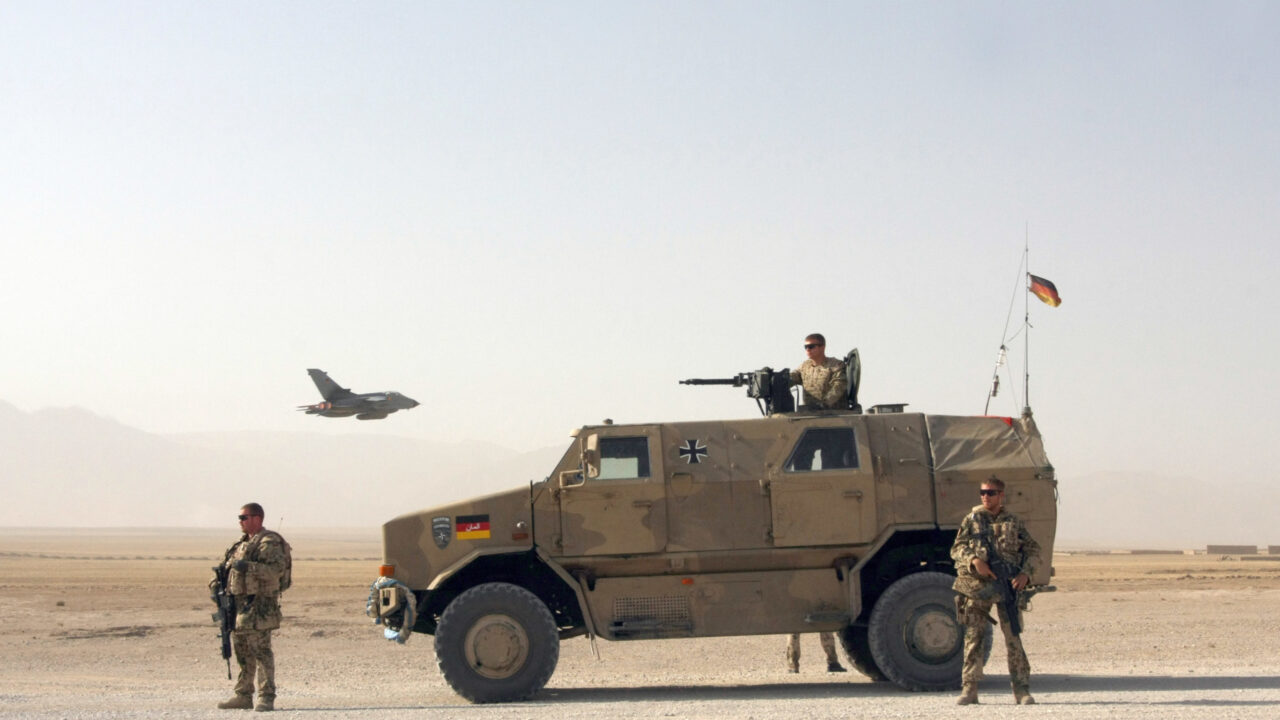Why Afghanistan was not a failure of European strategic autonomy
Hand-wringing over Europe’s supposed failure to step up in Afghanistan ignores the fact that Europeans were principally there to support the US
The war in Afghanistan is over – at least for Western armed forces. This week, the last US troops withdrew, and European soldiers left with them. In Europe, the chaotic withdrawal and the horrifying images of people clinging to departing aircraft has led to much hand-wringing, and renewed discussion of European military capabilities.
I would be the first to deplore the state of European defence and military capabilities. I have argued that Europeans, and especially Germans, should not drop the ball on EU defence efforts. I have warned that European common defence efforts could run into problems given the policy of military neutrality of several European states. I believe that Europeans should invest more in their defence, and be able to do more without the United States, while remaining close partners to the US and reliable members of NATO. Europe would not have been able to continue the Afghanistan operation without the US, and would not have been able to secure Kabul airport in the short time frame available. So, if the Afghanistan operation leads to Europeans arguing for stronger European military capabilities, I am all for it.
However, the current discussion taking place in Europe is misguided. Despite their shortcomings, the Afghanistan operation and withdrawal do not call into question European military capabilities. Nor do they represent a failure of the European Union’s goal of “strategic autonomy”.
Commentators suggest that when the US decided to leave Afghanistan, Europe could only stand by, fearful and powerless. The withdrawal, so the argument runs, put Europe’s credibility at risk. Even an esteemed colleague of mine made the claim on these pages that Afghanistan was a test case for European strategic autonomy.
Europe’s main motivation to send soldiers to Afghanistan was to support the US after 9/11
But this misses the point. Europe’s problem in Afghanistan was not one of capabilities. Europeans may not have had the capabilities – but they did not have the will to stay in Afghanistan any longer than the US did. The reason Europeans did not continue the Afghanistan mission without the US, and the reason why they did not secure the airport without the Americans, is that they did not want to, because it did not make sense for them.
Over the years, we, as well as many American commentators, appear to have forgotten the essential fact that Europe’s main motivation to send soldiers to Afghanistan was principally to support the US after 9/11. It was to respond to a NATO ally’s request for help, following the (first and so far only) invoking of NATO’s mutual defence clause, article 5. Yes, there were also concerns about potential attacks in Europe. And, especially in countries such as Germany, the efforts in Afghanistan were overlain by worries about women’s rights, humanitarian concerns, and hopes for nation-building. For many, these factors were fundamental. Others may have used them as a pretence, since drilling wells and building girls schools tend to be easier to sell to European electorates.
But, independently of how important these additional motivations were, Europe would not have gone into Afghanistan without the US, and without the US asking them to do so. This does not mean that statements such as then German defence minister Peter Struck’s comments in 2002 that “Germany’s security is being defended at the Hindukush” were wrong. It absolutely made sense strategically and from a security point of view to support our most important ally, whose (nuclear) umbrella has been keeping us safe for decades.
All of this therefore means very little reason remained for the Europeans to stay if the Americans left. Some Europeans, especially in the United Kingdom, have argued otherwise (though most of these voices were in favour of the US-led operation continuing). But at no point has there anywhere in Europe been a majority for going it alone. Could Europeans have continued the mission without the US? Probably not in any meaningful sense. Could they have secured the airport without US troops? Only with enough time to prepare, which was not an option. So, let us have a discussion about what security and defence capabilities Europe is still lacking, and address those. But let us not pretend that Afghanistan seriously tested those capabilities, as we did not want to use them in the first place.
The European Council on Foreign Relations does not take collective positions. ECFR publications only represent the views of their individual authors.



